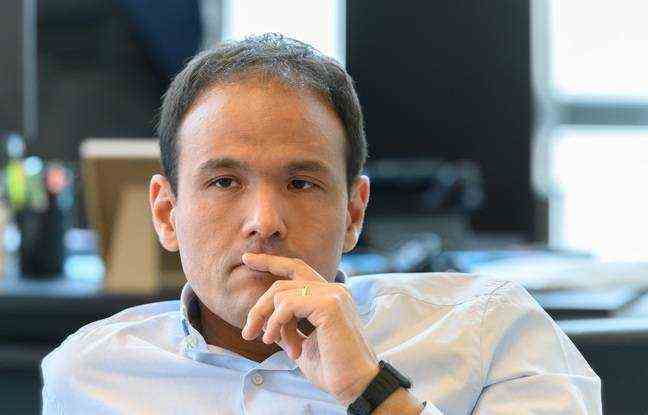Despite its image of innovation and progress, the world of start-ups is still far from being open to everyone. A
sociological study published in 2019 indeed showed that the leaders of French start-ups were for the most part men, graduates of grandes écoles, and often from financially or culturally well-off families. It is this lack of diversity that the program
French Tech Springboard, launched in 2019, seeks to correct. It targets entrepreneurs from diverse backgrounds – priority areas of the city, scholarship holders or asylum seekers, according to government criteria – and offers them financial assistance as well as a place in an incubator (a support structure).
While the first promotion was formed in early 2021, Cédric O, Secretary of State for Digital Transition, unveils exclusively at 20 minutes the contours of the second edition of the French Tech Tremplin. He announced an increase in “incubated” entrepreneurs and an overhaul of the preparation phase, which will start in the fall. The goal? Succeed in bringing about the emergence of viable companies, which can serve as an example and show the start-up world that diversity is a strength.
Today you are launching the second season of French Tech Tremplin, which aims to enable people from diverse backgrounds to be able to realize a business project. What’s new ?
The objective of this second promotion is twofold. First, we will support more entrepreneurs: 500 people will participate in a preparation phase, then 300 of them will join an incubator, compared to only 200 for the first promotion. Then, we will personalize the courses even more, in order to stick to the social and economic reality of the people we want to support.
Concretely, we will reduce this initial phase. Instead of six months of preparation, then a year of incubation, there will now be a ” boot camp »Two weeks to clearly define the projects and reorient them if necessary. It will be followed by a six-week in-depth study. A competition will then select the projects for the incubation phase. It will always last a year and will take place all over France, since around fifty incubators are partners in the operation.
Not everyone is intended to be incubated. We may notice after a few weeks that some business projects do not have the right positioning or must be redirected to other systems. This is why it is important to maintain a selection phase, because the goal is to create viable businesses.
When will it be possible to apply?
In the next few days. Our goal is for the first “boot camps” to take place in October 2021, and for entry into the incubator at the beginning of 2022. Registration can be done on the Mission French Tech website.
Do applicants have to have already created their business?
It can be a very mature project, a start-up that is already making sales, but not necessarily. The objective is that the candidates, at the end of the preparation phase, have a successful project that they can defend during the selection in the incubator.
Will the selected projects have financial support from the State?
There will be no more financial assistance during the preparation phase. On the other hand, the projects selected at the end of this phase will still benefit from aid of 30,000 euros in addition to the support offered by the incubator. This represents a budget of 10 million euros per year, against 7.5 million euros previously. This is a significant increase.

Will these new investments be enough to remedy the current lack of diversity? A study published in 2019 recalls that the majority of start-up founders are men from major engineering or business schools …
Of course, we have not come to the end of the story for equal opportunities. It is a long-term endeavor. We are not going to multiply by 10 the number of entrepreneurs from neighborhoods in a year. The objective of the French Tech Tremplin is to have examples of success. Beyond our action on entrepreneurs, I would remind you that we are investing to have more diversity among start-up employees, who represent the bulk of the work.
Today, the main obstacle preventing an entrepreneur from the suburbs or from an underprivileged background from succeeding is the network. In the neighborhoods, entrepreneurs are no less gifted than elsewhere. They are sometimes even more resourceful because they have known more difficulties. What is partly missing are the social codes, the address book. This is what we provide them with French Tech Tremplin.
You talk about “success stories” of companies that come from diversity. Why is this so important to you?
If the ecosystem of French start-ups is more diverse, it will be stronger. There is only to see abroad. BioNTech, which is saving Europe and the world with its vaccine (associated with Pfizer), is the fact of a Turkish immigrant couple in Germany. Google, Microsoft, are run by Indian immigrants. Cultural diversity, diversity of backgrounds, social diversity are extremely important elements. So these companies that we want to emerge must make it possible to show all those who are self-limiting that they can also be entrepreneurs.

